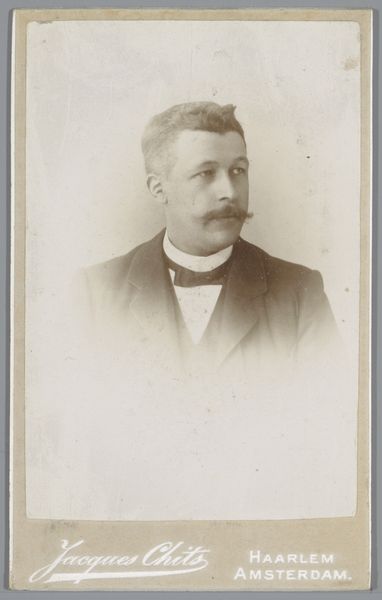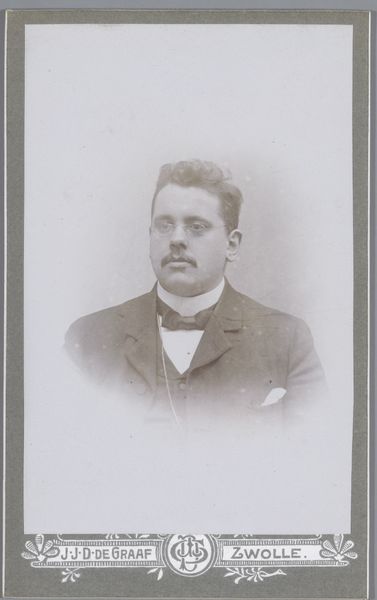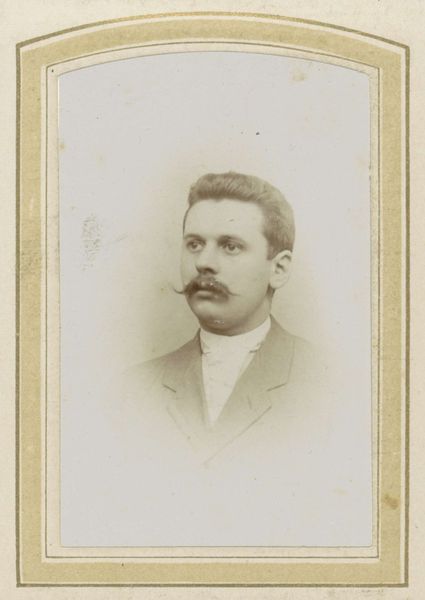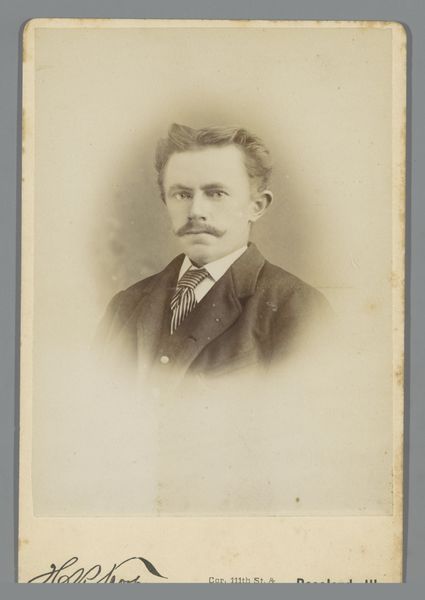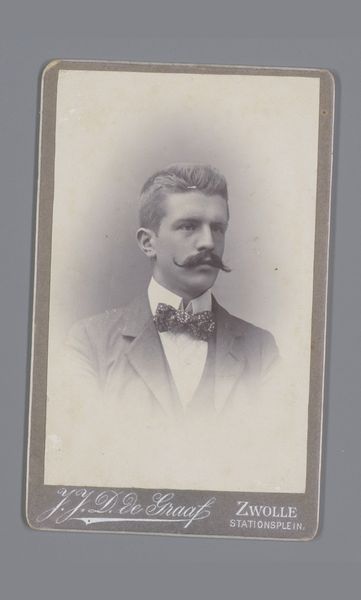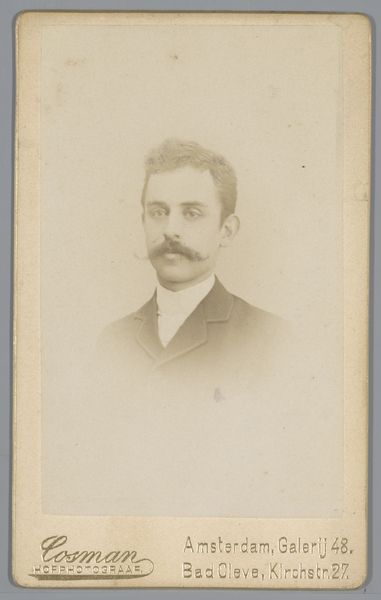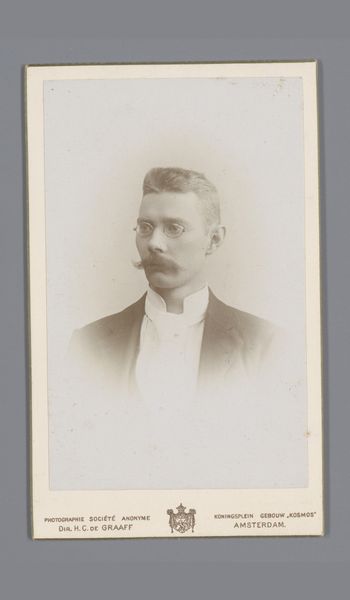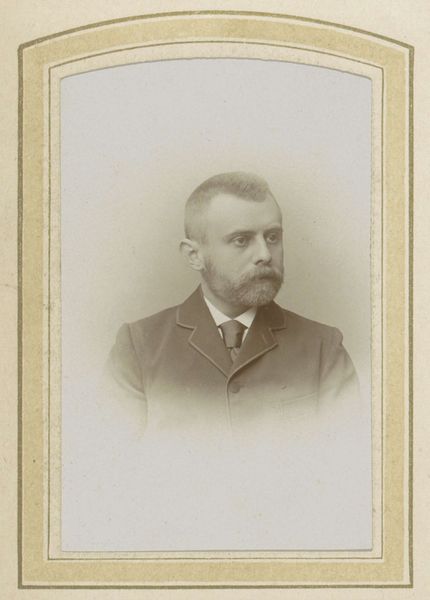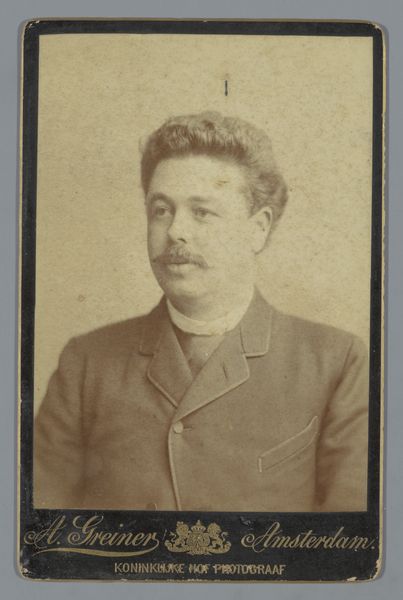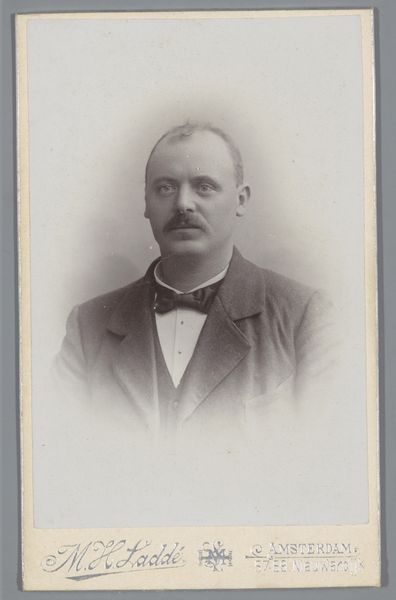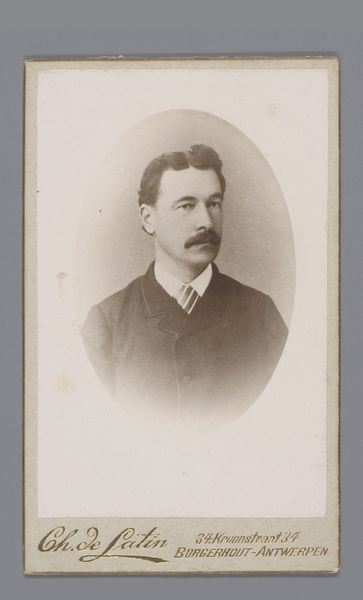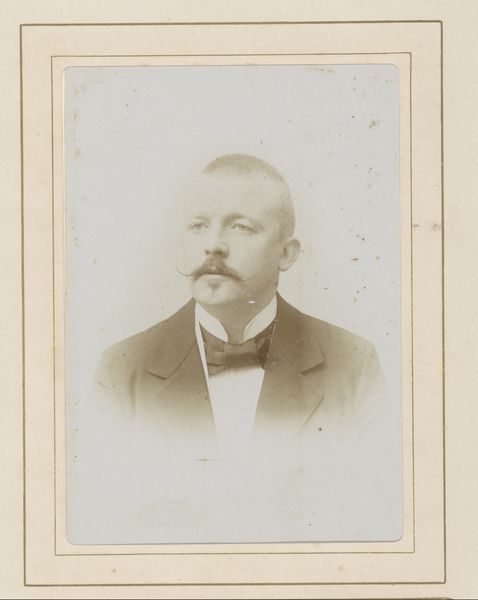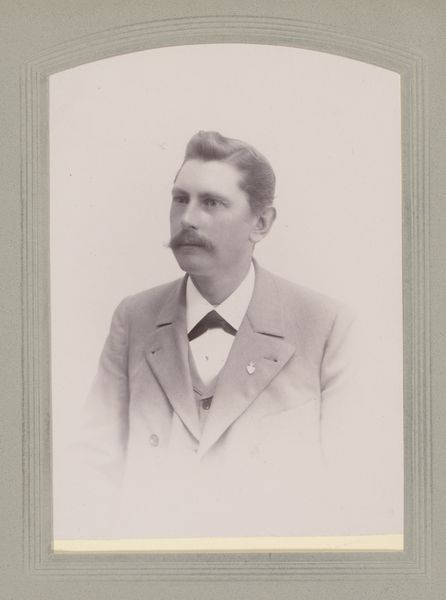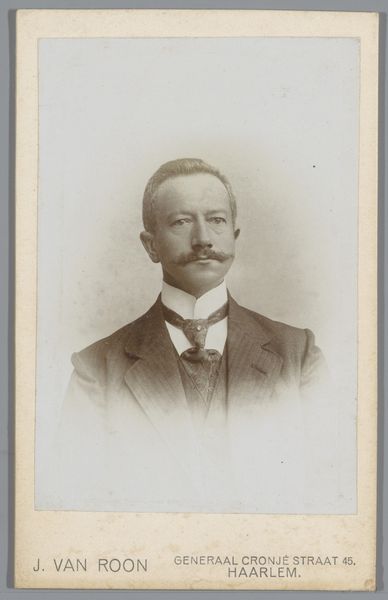
photography, gelatin-silver-print
#
portrait
#
photography
#
historical fashion
#
gelatin-silver-print
#
realism
Dimensions: height 105 mm, width 65 mm
Copyright: Rijks Museum: Open Domain
This is a portrait of an unknown man, captured by Willem Bernard Bekkering, likely in the late 19th century. The photograph, a modest rectangle of paper, is an albumen print, a process which involves coating paper with egg white to create a glossy surface. This process was popular during the Victorian era. Like many photographs from that period, it has a sepia tone, adding to its antique feel. The process itself has imbued the artwork with cultural significance, reflecting the era’s fascination with capturing and preserving images. Photography in the 19th century was labor-intensive, involving the careful manipulation of chemicals and equipment. The amount of work involved in the production process highlights photography’s evolving role in society. It went from being an esoteric process to a form of mass production. Ultimately, understanding the materials, making, and context enriches our appreciation, blurring the lines between fine art and craft.
Comments
No comments
Be the first to comment and join the conversation on the ultimate creative platform.
